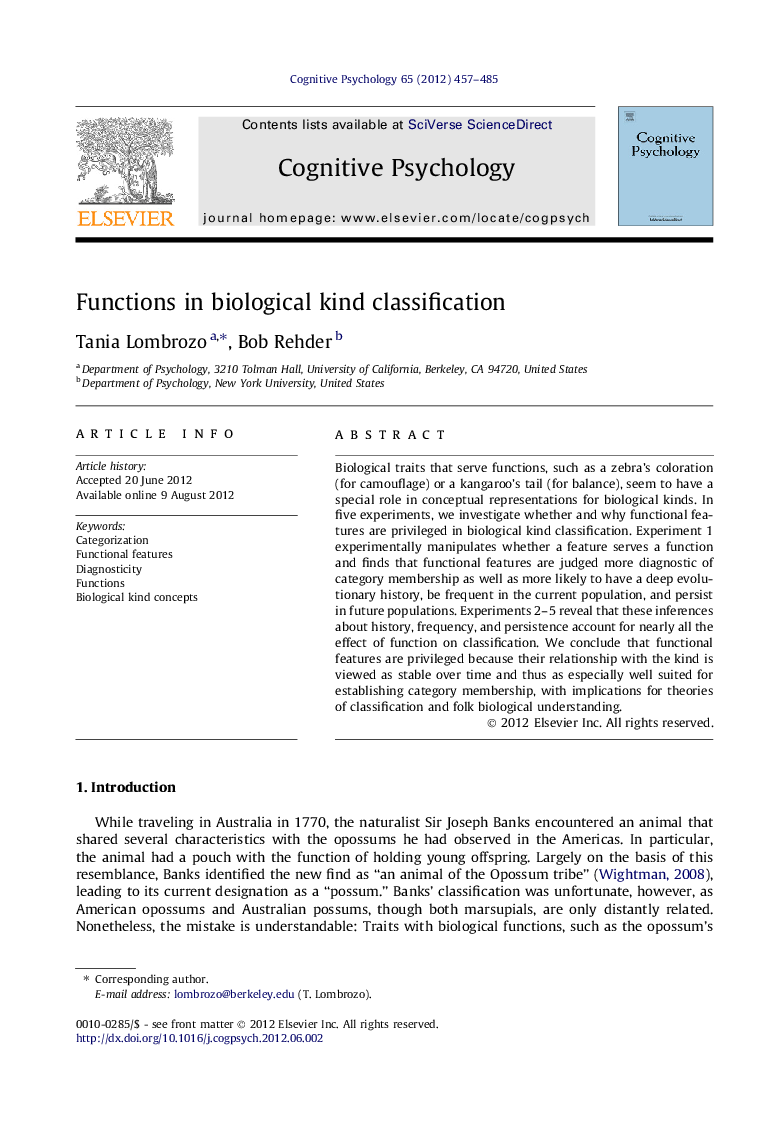| Article ID | Journal | Published Year | Pages | File Type |
|---|---|---|---|---|
| 916884 | Cognitive Psychology | 2012 | 29 Pages |
Biological traits that serve functions, such as a zebra’s coloration (for camouflage) or a kangaroo’s tail (for balance), seem to have a special role in conceptual representations for biological kinds. In five experiments, we investigate whether and why functional features are privileged in biological kind classification. Experiment 1 experimentally manipulates whether a feature serves a function and finds that functional features are judged more diagnostic of category membership as well as more likely to have a deep evolutionary history, be frequent in the current population, and persist in future populations. Experiments 2–5 reveal that these inferences about history, frequency, and persistence account for nearly all the effect of function on classification. We conclude that functional features are privileged because their relationship with the kind is viewed as stable over time and thus as especially well suited for establishing category membership, with implications for theories of classification and folk biological understanding.
► We examine why features with functions are important in biological kind concepts. ► Functional features are viewed as casually deep, frequent, and likely to persist. ► These inferences account almost entirely for effects of function on categorization. ► People belive functional features share a temporally stable relationship with kind. ► Stable features may be especially well suited for establishing category membership.
